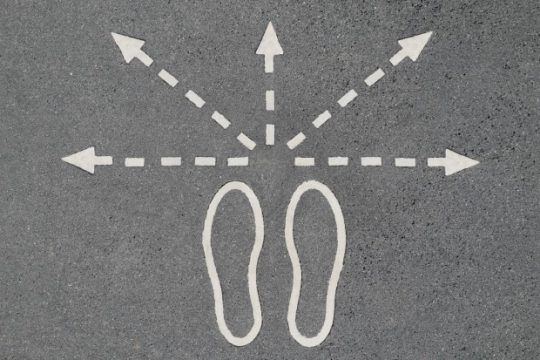
Claiming Window is 8 Years Long
Perched high on our list of Frequently Asked Questions is this: “When should I claim my Social Security retirement benefits?” That’s not surprising, since there is an 8 year window, starting at age 62 and ending at age 70, to claim benefits. Your ability to claim doesn’t really end at age 70; there’s just no reason to wait any longer because your benefit stops growing then, even if you’re still working. So, you shouldn’t wait past 70 to claim, but when should you claim? Let’s unravel that mystery.
About Claiming at Age 62
Most are fully aware that age 62 is the earliest Social Security retirement benefits can be claimed and are vaguely aware that their benefit will be more if they delay. Not surprisingly, age 62 is the most popular age to claim benefits, and that’s understandable – after paying into Social Security (SS) for a lifetime, many apply at 62 simply because they can and want to get some of their money back. That may, however, be a bad decision since at age 62 your benefit amount will be between 25% and 30% less than it would be at your full retirement age (FRA).
The “Full Retirement Age” or “FRA”
Full retirement age – somewhere between age 66 and 67 depending on your year of birth[1] – is when you get 100% of the benefit you’ve earned from a lifetime[2] of working. Claiming before FRA means a smaller benefit and waiting longer means a bigger one.
Deciding When to Claim
The mystery is deciding where in that 8 year window to claim. Here are some tips:
- If you’re working full time with a fairly high income, claiming before your FRA will cause Social Security’s “earnings test” to apply. The earnings test limits how much you can earn before SS benefits are either reduced or eliminated (the 2024 earnings limit is $22,320). So higher earners still working probably shouldn’t claim Social Security before they reach their full retirement age.
- Waiting past your full retirement age will allow you to earn Delayed Retirement Credits (DRCs). For each full year you delay past FRA you’ll get a benefit 8% higher. DRCs stop accumulating at age 70. If you don’t need the money right now, delaying is usually a wise move.
- Your “break even age” if you wait until your FRA to claim instead of claiming at age 62 will be about 78 (at 78 you will have collected the same total amount in either case). Your “break even” age if you wait until age 70 to claim instead of claiming at your FRA will be about 83.
- Your life-expectancy is important when deciding when to claim. Average life expectancy for someone in their early-mid 60’s is about 84 for a man and 87 for a woman. If you achieve at least average longevity, you’ll collect more in lifetime cumulative benefits by waiting longer to claim SS.
If You Are Married
If you are married, you should consider your spouse’s potential Social Security benefits from your record:
- If your spouse’s personal SS benefit at FRA is less than half of your FRA benefit amount, your spouse is eligible for an additional amount from you. Even if your spouse isn’t eligible for an SS benefit on their own, they can still get a benefit from your record. The maximum benefit a spouse can get is 50% of the other living spouse’s FRA benefit, but a spouse won’t get 50% if they claim before their full retirement age.
- When you claim your benefit could affect your surviving spouse. Surviving spouses are eligible to collect as much as 100% of the benefit the deceased spouse was receiving. But if a survivor benefit is claimed before the survivor’s FRA, it is reduced.
If You Have a Minor or Disabled Child
If you have a minor or disabled adult child, that child could get benefits when you claim your Social Security. Similarly, your spouse under age 62 caring for your minor or disabled adult child could get “child-in-care” spouse benefits when you claim. But the Family Maximum may limit their benefits.
Consider Your Circumstances!
Deciding when to claim your Social Security shouldn’t be done capriciously; it’s a decision best made after fully evaluating your specific personal circumstances. It is, after all, a decision which will affect you the rest of your life. Sometimes, claiming before full retirement age is the right thing to do, and other times waiting until after FRA is prudent. The AMAC Foundation’s Social Security Advisory Service can help you decide when to claim. If you have questions about Social Security, contact us at 1-888-750-2622 or email us at [email protected].
[1] If your year of birth is before 1955, your FRA is 66; if after 1960 your FRA is 67. If your year of birth is between 1955 and 1959, your FRA is 66 years plus 2 months for each year past 1954.
[2] Your base FRA benefit amount (called your Primary Insurance Amount, or “PIA”) is computed using the highest-earning 35 years over your lifetime (adjusted for inflation). Your PIA is your benefit at FRA.
Subscribe
Sign Up for Our E-Newsletter!
Stay up-to-date on all of the topics you care about by subscribing to our quarterly newsletter emailed directly to your inbox!
SubscribeSubscribe
Sign Up for Our E-Newsletter!
Stay up-to-date on all of the topics you care about by subscribing to our quarterly newsletter emailed directly to your inbox!
Subscribe